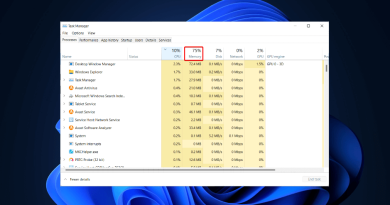How to Choose the Best Programming Language for a Web Development Project?
In the ever-evolving landscape of net development, deciding on the right programming language for your challenge is an essential decision. The programming language you pick could have a profound impact on your assignment’s achievement, overall performance, scalability, and maintenance. With the multitude of programming languages to be had, each with its very own strengths and weaknesses, it is crucial to make a knowledgeable preference. In this newsletter, we can discover the factors to not forget whilst selecting a programming language in your internet improvement undertaking, and we’ll delve into a number of the most famous alternatives to be had today.
Factors to Consider When Choosing a Programming Language
Selecting a pleasant programming language for an internet development mission requires a thoughtful assessment of numerous key factors. Here are a few vital concerns to hold in thoughts:
1. Project Requirements
The first and maximum essential element to do not forget is your challenge’s precise requirements. Different programming languages are better desirable for diverse kinds of net applications. Are you constructing a content material-centered weblog, a dynamic e-trade platform, a records-extensive internet utility, or an actual-time chat utility? The nature of your task will notably affect your desire for programming language.
2. Performance
Performance is an important difficulty for net applications. The programming language you choose can affect the rate and responsiveness of your website online or net app. If your task includes heavy computations, facts processing, or real-time interactions, you will want a language that can deal with those responsibilities efficaciously.
3. Scalability
Scalability is important if you assume an increase in your net application’s user base or capability. Consider whether the language you choose helps horizontal and vertical scaling, in addition to load balancing. A language that can scale along with your challenge’s growth is worthwhile.
4. Community and Ecosystem
A thriving developer community and a wealthy atmosphere of libraries and frameworks can substantially simplify net improvement. Languages with big and energetic communities frequently acquire well-timed updates, protection patches, and community-driven support. Additionally, a wide environment can offer you a wide array of tools and sources to boost your development manner.
5. Development Speed
The time it takes to broaden a web application can be an essential element, specifically in aggressive markets. Some programming languages are regarded for their fast improvement competencies, while others may also require greater effort and time to attain equal consequences. Evaluate whether or not your preferred language aligns along with your mission’s timeline.
6. Maintenance and Support
Maintaining internet software is an ongoing method. Ensure that the language you pick has a protracted-time period support plan in location. Frequent updates, security patches, and a sturdy help community could make a sizeable distinction within the stability and safety of your application.
7. Budget
Budget constraints are a reality for many web development tasks. Consider the price related to hiring builders proficient in a particular language, in addition to any licensing prices for proprietary languages or equipment. Balancing price and overall performance is important.
8. Security
Web protection is a paramount problem in today’s virtual panorama. Some programming languages include built-in protection capabilities, while others require you to put into effect security features manually. Evaluate how nicely your selected language can deal with commonplace security threats and vulnerabilities.
9. Platform Compatibility
Consider in which your web application will run. Will it be hosted on a specific cloud platform, or does it want to support more than one running structure and net servers? Ensure that your selected language is well-matched with the goal structures.
10. Talent Pool
The availability of professional developers proficient in your preferred programming language is vital. A language with a larger skills pool can make it simpler to locate skilled builders, decreasing hiring challenges.
Now that we have outlined the important thing elements don’t forget to discover a number of the most famous programming languages utilized in web development and the way they stack up against these criteria.
Popular Programming Languages for Web Development
1. JavaScript
JavaScript is the undisputed king of internet development languages. It is a versatile, excessive-degree, and dynamic scripting language that runs in net browsers, making it vital for front-quit development. Here’s how JavaScript measures up to the factors we mentioned:
Project Requirements: JavaScript is suitable for building an extensive range of internet programs, from easy interactive websites to complicated single-page packages (SPAs).
Performance: JavaScript’s performance has improved extensively with the advent of present-day engines like V8 (utilized in Chrome) and JavaScript runtime environments like Node.Js. For computationally in-depth duties, WebAssembly can be included to reinforce overall performance.
Scalability: JavaScript can scale successfully, in particular when blended with the right backend technologies and frameworks.
Community and Ecosystem: JavaScript boasts certainly one of the most important and maximum active developer communities. It has an extensive surrounding of libraries and frameworks, together with React, Angular, and Vue.Js for front-quit improvement and Node.Js, Express.Js, and NestJS for backend improvement.
Development Speed: JavaScript’s interpreted nature and tremendous atmosphere make it a fantastic choice for fast improvement.
Platform Compatibility: JavaScript is like-minded with all essential browsers and running structures.
Talent Pool: JavaScript developers are in abundance, making it highly clean to discover skilled specialists.
2. Python
Python is a high-level, dynamically typed programming language regarded for its clarity and simplicity. It is a versatile language that is used for both internet improvement and a huge range of other programs. Let’s investigate Python in opposition to our standards:
Project Requirements: Python is appropriate for diverse web packages, including content material-primarily based websites, e-commerce platforms, and net services.
Performance: While no longer as performant as decrease-degree languages like C++, Python is still appropriate for most web applications. Optimization strategies and 1/3-celebration libraries can be used to improve overall performance.
Scalability: Python can scale horizontally and vertically with the proper structure and infrastructure in place.
Community and Ecosystem: Python has a sturdy network and a sizeable atmosphere of libraries and frameworks like Django, Flask, and FastAPI for net improvement.
Development Speed: Python’s simplicity and clarity make it a brilliant desire for speedy development.
Maintenance and Support: Python is nicely supported, with regular updates and a sturdy network. It is usually considered a secure language.
Talent Pool: Python developers are in call, and you may discover skilled Python builders especially easily.
3. Ruby
Ruby is a dynamic, excessive-level programming language recognized for its fashionable syntax and developer-friendly philosophy. It won popularity in the main through the Ruby on Rails framework. Here’s how Ruby fares in opposition to our criteria:
Project Requirements: Ruby is nicely perfect for building web programs, mainly when paired with Ruby on Rails for fast development.
Performance: Ruby may not be the fastest language, but it can perform properly for plenty of internet programs. Performance optimizations may be carried out while needed.
Scalability: Ruby can scale correctly, however, it may require additional attempts in phrases of architecture and optimization.
Community and Ecosystem: Ruby has a dedicated community, and Ruby on Rails is a popular web improvement framework with many libraries and gemstones available.
Budget: Ruby’s improvement can be cost-powerful because of its developer-pleasant nature and the provision of open-source libraries.
Security: Ruby on Rails emphasizes safety, and there are gear and high-quality practices available to beautify protection.
Platform Compatibility: Ruby is well suited to numerous operating systems.
Talent Pool: While Ruby builders aren’t as plentiful as JavaScript or Python developers, there’s still a stable skills pool to be had.
4. PHP
PHP (Hypertext Preprocessor) is a server-side scripting language designed for net improvement. It has been a staple of net development for many years. Let’s evaluate PHP based on our standards:
Project Requirements: PHP is appropriate for a wide range of web applications, which include content control structures (CMS), e-trade structures, and net offerings.
Performance: PHP can carry out well for many web packages, specifically when mixed with caching mechanisms and optimization techniques.
Scalability: PHP can scale horizontally and vertically, but cautious architecture-making plans are vital for large-scale programs.
Community and Ecosystem: PHP has a big and lively network, and there are various PHP-primarily based frameworks like Laravel and Symfony.
Development Speed: PHP is understood for its rapid development abilities, and lots of famous CMS structures like WordPress are constructed with PHP.
Maintenance and Support: PHP is actively maintained, however builders should be vigilant about security updates and satisfactory practices.
Budget: PHP is value-powerful, as it’s miles open source and broadly used, lowering the cost of hiring developers.
5. Java
Java is an extensively-used, statically-typed programming language regarded for its portability and scalability. It is regularly used for constructing huge, agency-degree net programs. Let’s investigate Java towards our criteria:
Project Requirements: Java is appropriate for complex net packages, mainly those with excessive scalability and overall performance needs.
Performance: Java’s overall performance is top-notch, mainly when optimized and used with efficient frameworks.
Scalability: Java is famous for its scalability and may cope with big, agency-degree packages.
Community and Ecosystem: Java has a considerable atmosphere with numerous frameworks and libraries, such as Spring and Java EE.
Development Speed: Java improvement won’t be as fast as some different languages, however, it excels in complicated, long-term initiatives.
Maintenance and Support: Java blessings from robust support, with regular updates and a focal point on protection.
Budget: Java development can be fee-powerful for massive-scale, lengthy-term projects, but initial development costs can be higher.




